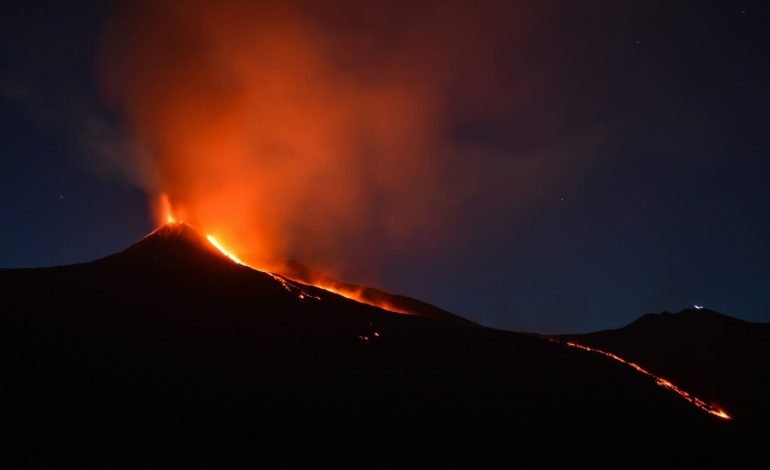Eruptions not responsible for dinosaur extinction, study suggests

Volcanic eruptions on the Indian peninsula have long been suggested as alternative causes of the extinction of the dinosaurs. The phase of active volcanism in the period just after a meteorite struck the earth 66 million years ago affected the earth and these eruptions have been the topic of scientific debate for decades.
Climate scientists from Utrecht University and the University of Manchester have found that though volcanic activity did create a temporary cold period, its effects had worn off thousands of years before the meteorite impacted. They came to the conclusion that the meteorite impact was the primary reason for dinosaurs, along with many other animals, becoming extinct during that time.
The Chicxulub meteorite in Mexico, around the size of Mount Everest, is therefore believed to have been the primary cause but many children’s books, even today, include speculation on the competiting ideas.
The impact in the Gulf of Mexico has been well researched and is known to be the main culprit for the end of the time of the dinosaurs. But many Earth scientists have long suggested that a massive outpouring of lava, both before and after the meteorite impacted the earth, as being contributing factors to the end of the dinosaurs. These eruptions would release immense amounts of CO2, sulphur, and dust into the atmosphere and play a significant role on the planet’s climate.
A new publication in the journal Science Advances by climate scientists from Utrecht University and the University of Manchester now offers compelling evidence that, although these eruptions in India did have an impact on the climate of the planet, they had little to no effect on the mass extinction.
Looking at fossil molecules in ancient peats from the US, the team was able to reconstruct air temperatures for the time, looking at both the eruptions and the meteorite impact. With this, they concluded that a major volcanic eruption had happened some 30,000 years before the meteorite, resulting in at least 5° Celsius in cooling of the planet. This, they concluded, was due to volcanic sulphur blocking sunlight from reaching the surface of the Earth.
Around 20,000 years before the impact, they found that the climate had already stabilised, with temperatures returning to the time before the eruptions.
“These volcanic eruptions and associated CO2 and sulphur release would have had drastic consequences for life on earth,” Lauren O’Connor at Utrecht University said. “But these events happened millennia before the meteorite impact and probably played only a small part in the extinction of dinosaurs.”
Stay tuned to EyeOnLondon for the latest news and expert opinions.
Follow us on:
Subscribe to our YouTube channel for the latest videos and updates!
We value your thoughts! Share your feedback and help us make EyeOnLondon even better!









